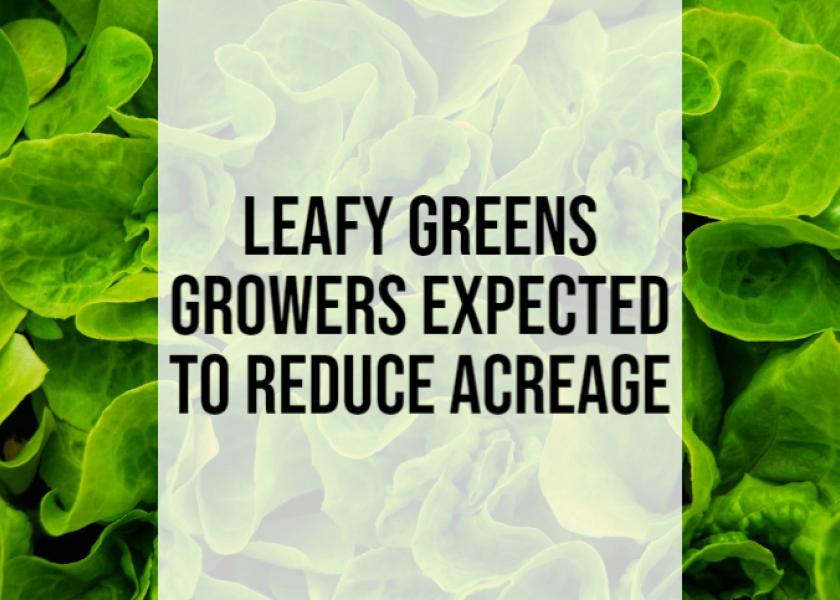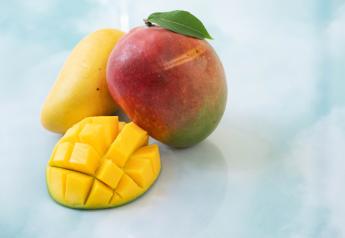Leafy greens growers expected to reduce acreage

California leafy greens growers are expected to plant reduced acreage in the next few months because of declines in foodservice demand related to the COVID-19 pandemic.
“What we are hearing from some (leafy green) industry participants is that they’re likely going to cut back 10% to 15% of their acreage that they’re planting, say over the next 60 days,” Roland Fumasi, senior analyst for fruit, vegetables and floriculture with RaboResearch, said April 28.
Because of reduced demand over the past six weeks, growers for foodservice have walked away from fields. Many are trying to redirect volume to retailers.
“Our foodservice clients in the leafy green space, are telling us that they were having to walk away from 50% to 85% of their acreage that was bound for foodservice,” Fumasi said.
The U.S. Department of Agriculture reported the shipping point price for romaine lettuce on April 29 was $6.65 per carton, down about $2 per carton compared with a year ago.
David Magana, senior analyst for horticulture for RaboResearch, said vegetables generally rely more on foodservice than fruits.
“The numbers that we use as a rule of thumb is that about 35% of vegetables are marketed through the foodservice channels, with probably tomatoes and lettuce with a higher proportion going to foodservice,” Magana said.
About 15% of fresh fruit is marketed through foodservice channels, he said.
Retail performance
Stronger sales at retail have helped compensate for lagging foodservice demand.
Fumasi said retail data for the four weeks ending April 12 showed fresh produce sales were up 17% compared with the same period last year.
Fresh fruit sales were up about 9% for the four-week period, while fresh vegetable sales were up 25%.
“The reason that you see the bigger jump in vegetables is because they generally rely more heavily on foodservice anyway, so you see a bigger switch there,” he said.
Fumasi said orange sales for the period were up 55%, but sales of grapes, melons and pears were down.
The 25% overall increase in vegetables was highlighted by gains in potatoes and sweet potatoes, Fumasi said, at 80% and 55% increases, respectively.
Packaged salad sales for the four-week period ending April 12 were up just 7%.
“When you consider packaged salads’ reliance on foodservice, when we net it all together (including lost sales to foodservice) packaged salad sales overall are down over 20% to the downside,” he said.
Rebounding foodservice
Fumasi said that foodservice sales are likely to increase when states end lockdowns.
“Consumers want to go out, they want to get back to life as normal and so I think that bodes well for foodservice,” he said. “The big risk out there on the consumer side is that hopefully we don’t have resurgence (of COVID-19) outbreaks where and the government is going to have to continue to take some more drastic measures and tell us to get back indoors.”
Fumasi said Rabobank estimates there could be about 15% revenue loss for the $30 billion California specialty crop sector because of the COVID-19 crisis. Even 10% damage would mean losses of $3 billion for California alone, which is more than the
$2.1 billion in federal direct payments allocated to the entire fruit an vegetable sector.
Related content:
Romaine news and updates
Organic vegetable sales skyrocket, marketers say
California LGMA CEO Scott Horsfall plans 2021 retirement
COVID-19 updates







